AMHA DNA Kit Request
The American Morgan Horse Association (AMHA) offers low-cost DNA kits to verify the parentage of unknown horses who may be Morgans.
I have always wondered about Violet's origins. From what I have heard, she was purchased as a 5- or 6-year-old, but her owners did not know she was pregnant at the time. When it was clear she was heavily pregnant, my former vet helped place her with my former trainer. Beyond that, I do not know much about her early years.
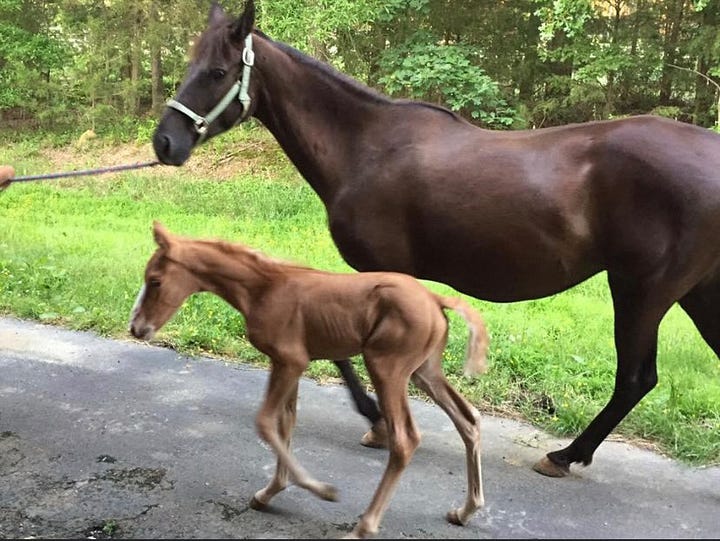
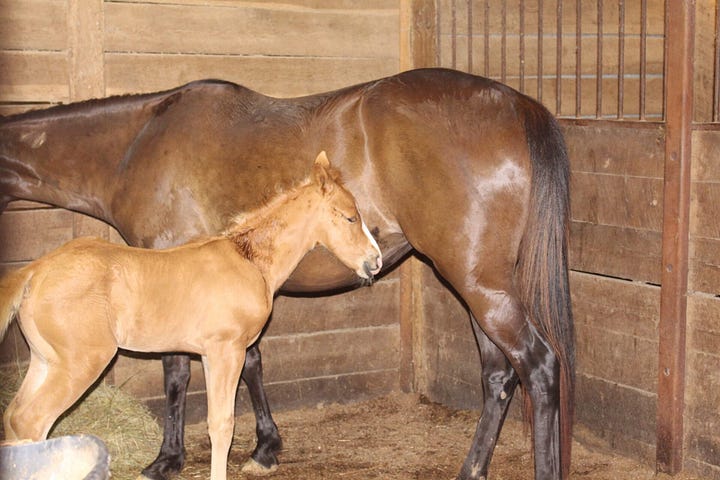
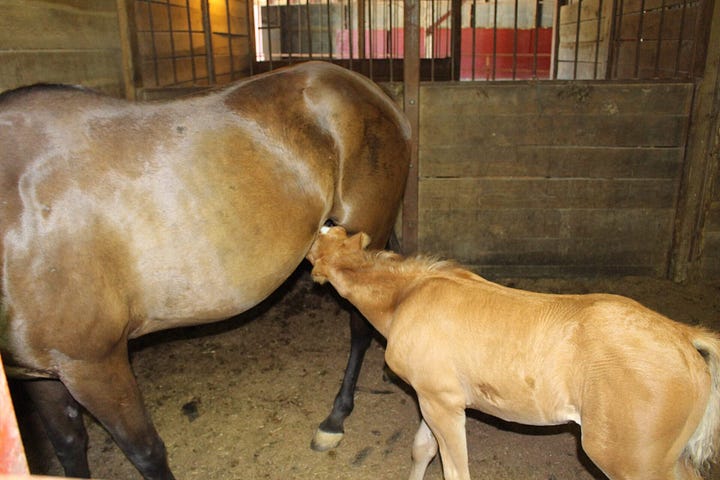
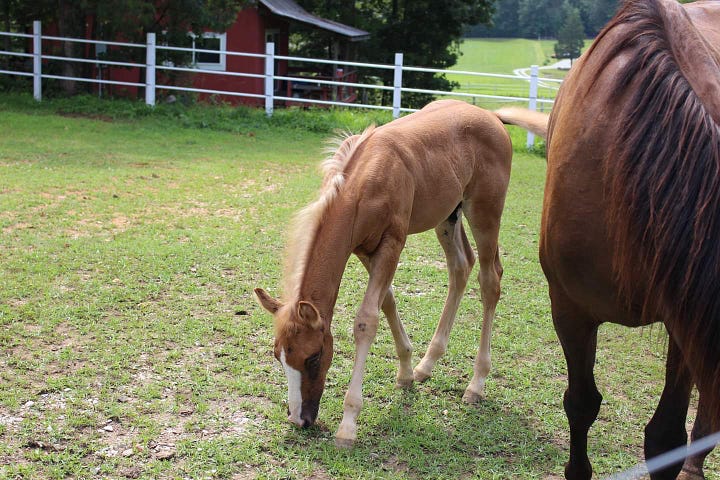
I recently was able to locate her foal, who was born on 5/23/2016, and it got me wondering more about her past. Is there any way I can learn more about her or where she came from?
American Morgan Horse Association Parentage Verification
A few months ago, a friend of mine sent me the AMHA DNA Kit for Unknown Horse Request form. At first, I didn't give it much thought. I was (and still am) pretty sure Violet isn't registered. However, when I came back to the form recently, I learned more about the DNA testing that the American Morgan Horse Association (AMHA) does.
It has become popular recently to test horses for their breed. However, like dogs, this type of testing is notoriously inaccurate. AMHA does not recognize genetic testing to verify Morgan heritage. Instead, AMHA verifies parentage through DNA typing.
Verifying parentage through DNA means that the horse-in-question's sire and dam must have DNA established with AMHA through blood or DNA qualification. AMHA does not recognize half-Morgans, so registered Morgans must be 100% purebred.
In other words, in order for a foal to be a registered Morgan, both its sire and dam must be registered Morgans. The sire and dam can only be registered Morgans if both their sires and dams are registered Morgans. And so on and so forth.
The AMHA Welfare & Rescue Committee has a program called Dollars for DNA where registered 501(c)(3) rescues can request DNA testing kits to help at-risk Morgans who may have become separated from their registration papers.
According to the AMHA website, the history of the parentage verification program is as follows:
Beginning in 1974, any mare that was exposed to two or more stallions during a heat cycle had to be blood typed as well as the foal.
A random sample blood-typing program was adopted in 1977, which caused 1 percent of the foals being registered to be parentage verified.
Blood typing of all breeding stallions became a requirement in 1981.
Beginning in 1985, every foal that was conceived using transported semen had to be blood typed as well as the dam.
Beginning in 1986, all horses two years old and over at the time of application for registration were required to be typed as well as both of their parents.
Beginning in 1987, all mares foaling for the first time had to be blood typed before their foal could be registered (mares that had produced foals were exempt).
Beginning in 1992, all foals born after 1/1/92 had to be typed before being registered.
Beginning in 1994, all mares producing foals were required to be typed including the mares that had previously been exempt.
Effective January 1, 2001, all foals were required to have a DNA type on file before being registered.
The AMHA required all foals to have parentage verified by DNA typing beginning January 1, 2001. Violet has an estimated birth year of 2010, and while that may not be exact, she was definitely not born before 2001. If she was a registered Morgan, her DNA would need to have been verified with AMHA as a foal in order to be registered.
However, if her sire and/or dam were born before 2001, it is murkier to me about how parentage is verified. I am not clear how or if DNA typing can result in positive identification of parents who were only blood typed.
DNA Kit Request
It is very unlikely that Violet is a purebred Morgan, registered or not. However, I am not sure what the results from AMHA will contain. If she possibly had a purebred sire or dam, that would be interesting to know. So, I decided to pony up the $50 and request a DNA kit.
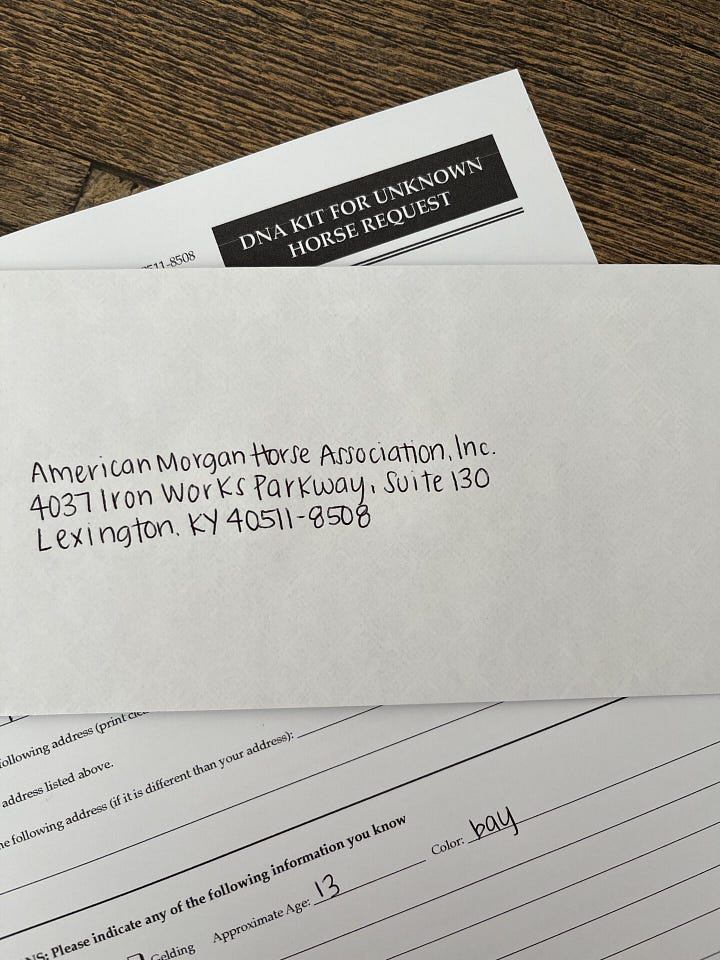
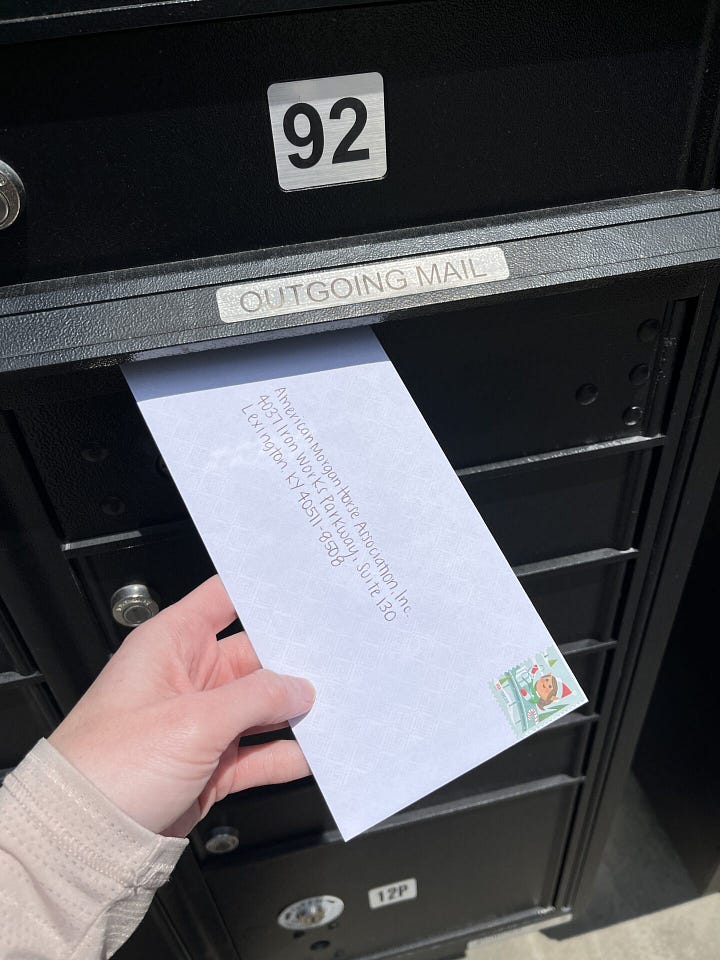
AMHA has a special form for DNA kits for unknown horses versus normal registrations. The form itself is very straightforward. It asks for as much information as you have about the horse and your contact information. AMHA cashed my check about a week after I mailed my completed form, so I assume it was accepted.
I have no real expectations for how this will turn out. Most likely, I will find out she isn't registered and neither were her parents. At worst, I will learn more about the DNA testing process through AMHA, which has been surprisingly hard to learn more about.
I also have no idea how long this will take. I plan to write an update when I receive the DNA testing kit, which will hopefully be soon. However, I am not sure how long the actual DNA testing process will take. In any case, I am excited to participate in this program and share her results.


